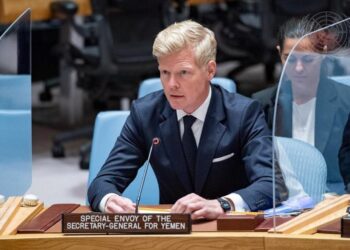Washington has set new sanctions on Iranian oil industry and affiliate entities despite claims over the necessity of reviving JCPOA.
A new set of sanctions on Tehran has been unveiled by the US government on Wednesday. The latest move comes while diplomatic efforts to resuscitate the nuclear agreement with Iran is hoped to reach an outcome.
The new regulations, which were unveiled on Wednesday, are directed at a worldwide network of people and organizations. The targets, according to the Department of the Treasury, made it easier for Iranian oil and petrochemical supplies to be sold in East Asia despite US sanctions.
The fresh sanctions narrowly follow the latest round of negotiations between officials from Tehran and Washington in Qatari capital in an effort to revive the JCPOA. Iran reduced its nuclear program as part of the international deal over the course of a ten-year period.
In return, the western countries agreed to remove economic sanctions against Iran and to ease trade and financial transactions. “While the United States is committed to achieving an agreement with Iran that seeks a mutual return to compliance with the Joint Comprehensive Plan of Action, we will continue to use all our authorities to enforce sanctions on the sale of Iranian petroleum and petrochemicals,” A US Treasury statement insisted.
The restrictions put in place yesterday affected a number of people and businesses with offices in Iran, the UAE, and Hong Kong. The US accused these organizations of aiding in the shipment and export of Iranian petrochemical items worth hundreds of millions.
The sanctions will prevent American trade corporations from engaging in trade with these firms, freeze their holdings in the United States, and block them the American financial structure. The US foreign issues apparatus also announced penalties on organizations with offices in Iran.
Sanctions in Time of Negotiations
“The United States has been sincere and steadfast in pursuing a path of meaningful diplomacy to achieve a mutual return to full implementation of the Joint Comprehensive Plan of Action (JCPOA),” these remarks by US secretary of State following the new sanctions seems ironic. Blinken, in effect, utilizes the new sanctions as a privilege to press Iran at the table.
Three years into the deal, American ex-President Donald Trump departed the accord and started a campaign of “maximum pressure” sanctions against Tehran. In response, the Iranian administration began expanding its nuclear activities far beyond the deal’s bounds.
The JCPOA will be revived by mutual cooperation, as US President and his closest advisers kept claiming. However, they have continued to implement Trump’s penalties while also introducing many more in practice.
The likelihood of saving the Iran deal has been dwindling before Biden gets ready to travel to the region. US authorities have issued a warning that the chance to save an accord is dwindling as Tehran gains irrevocable nuclear knowledge.
Starting over 15 months ago, negotiations in Vienna went through many rounds without success. Prior to their restart last week in Qatar, the discussions had been suspended for several months.
Tehran has attributed the failure to strike an agreement thus far on US reluctance to lift the sanctions. “We remain ready to negotiate a strong & durable agreement. US must decide if it wants a deal or insists on sticking to its unilateral demands,” the Iranian foreign minister tweeted a day before new sanctions.
The introduction of new sanctions may further complicate the possibility of a new deal. Washington’s move goes against a smooth diplomatic path to the resolution. Biden’s visit to Saudi Arabia and Israel next week might prove another blow to the hopes.







